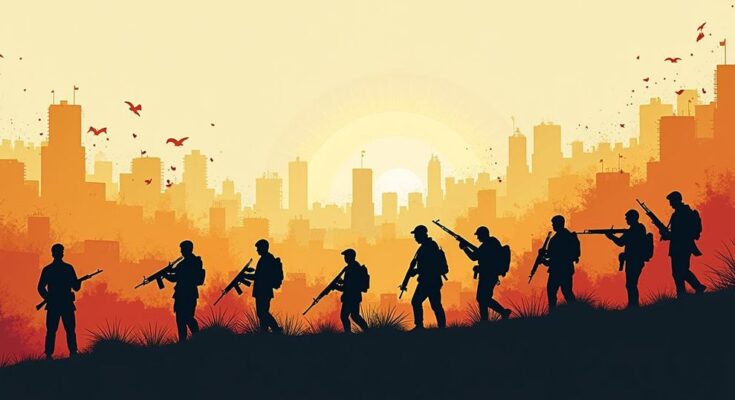Hezbollah accused Israel of a deadly attack on its operatives, which involved the explosion of pagers that killed 11 and injured approximately 2,750 people in Lebanon. This incident is the latest development in a prolonged conflict between Hezbollah and Israel, which has escalated significantly since October 2023 amidst the backdrop of Israel’s military actions in Gaza. The conflict has historical roots dating back to Israel’s invasion of Lebanon in 1982 and continues to evolve with significant humanitarian implications.
Hezbollah’s ongoing conflict with Israel has sparked a series of violent escalations resulting in widespread casualties and injuries. The latest incident occurred on September 17, 2024, when approximately 2,800 pagers belonging to Hezbollah members unexpectedly detonated in Lebanon, leading to the deaths of at least 11 individuals, including three civilians, and injuring around 2,750 others. In response, Hezbollah has accused Israel of orchestrating the attack and has vowed retaliation. This occurrence is part of a prolonged confrontation that has persisted for decades, particularly intensifying since the onset of attacks initiated by Hezbollah on October 8, 2023, aimed at countering Israeli military actions against Gaza. The origins of the conflict between Hezbollah and Israel date back nearly 50 years. It began in earnest with Israel’s invasion of Lebanon in 1982, motivated by a desire to eliminate the Palestine Liberation Organization (PLO) present in southern Lebanon. In the wake of the invasion, Hezbollah was formed, backed by Iranian support, with the intention of resisting Israeli occupation. Over the years, the conflict has witnessed numerous military engagements and shifts in political dynamics. Notably, Hezbollah has evolved from a purely military group into a significant political force within Lebanon, holding substantial parliamentary representation and engaging in extensive social programs. Key confrontations have defined this conflict, such as the bombings in Beirut in 1983 that killed over 300 foreign peacekeepers, Israel’s withdrawal to the Litani River in 1985 following intense pressure from Hezbollah, and the devastating July War in 2006, which resulted in substantial civilian casualties on both sides. More recently, significant escalations occurred during Israel’s military operations in Gaza, prompting Hezbollah’s involvement via military provocations along the Israel-Lebanon border. In support of Gaza amidst the latest flare-up, Hezbollah initiated a rocket campaign against Israel, aggravating the situation further. This series of violent engagements illustrates the continuous cycle of hostilities that has characterized the relationship between these two groups, illustrating the complexities involved in Middle Eastern geopolitics and the profound human cost of the conflict.
The conflict between Hezbollah and Israel is deeply rooted in historical, political, and social contexts, especially dating back to the Israeli invasion of Lebanon in 1982. Israel’s military actions were primarily aimed at curbing Palestinian activities and eliminating the PLO, which prompted the formation of Hezbollah. The group emerged as a resistance organization with significant support from Iran, drawing strength from marginalized Shia communities in Lebanon. Over the years, Hezbollah’s role has shifted, increasingly involving itself in Lebanese politics while maintaining military resistance against Israel. The interaction between these two entities has frequently escalated into violence, affecting broader regional stability.
In summary, the recent explosion of Hezbollah’s pagers serves as the latest episode in a long-standing and fraught history between Hezbollah and Israel. The ongoing cycle of retaliation and military engagement, coupled with the underlying socio-political issues, continues to pose significant challenges to peace and stability in the region. The ramifications of these conflicts reach far beyond the immediate area, influencing international relations and security strategies.
Original Source: www.aljazeera.com




